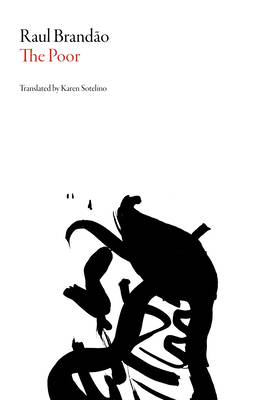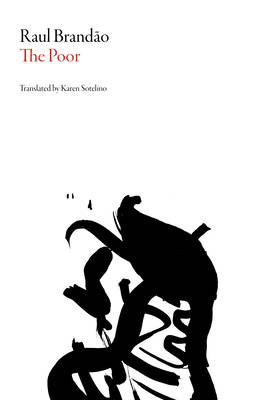
- Afhalen na 1 uur in een winkel met voorraad
- Gratis thuislevering in België vanaf € 30
- Ruim aanbod met 7 miljoen producten
- Afhalen na 1 uur in een winkel met voorraad
- Gratis thuislevering in België vanaf € 30
- Ruim aanbod met 7 miljoen producten
Zoeken
Omschrijving
The Poor (Os Pobres, 1906), by Portuguese author Raúl Brandão is a powerful tribute to the underclasses. Innovative thematically and stylistically, the novel consists of loosely connected vignettes on two narrative levels: the lives of prostitutes, where the inexorable need for love is transformed into a means for survival; and the life of Gebo, a seemingly slovenly man, with neither sentiment nor intelligence. Instead, as he searches tirelessly for work -- and loves his daughter and wife with tenderness and constancy -- he is revealed as a victim of the economic situation in Portugal. With prescience, Brandão emphasizes the interdependence between nature and humankind by intertwining descriptions of the physical and human surroundings, while his depictions of desperation, sorrow and violence prefigure the works of contemporary Portuguese writers.
Specificaties
Betrokkenen
- Auteur(s):
- Vertaler(s):
- Uitgeverij:
Inhoud
- Aantal bladzijden:
- 177
- Taal:
- Engels
- Reeks:
Eigenschappen
- Productcode (EAN):
- 9781564787644
- Verschijningsdatum:
- 22/07/2016
- Uitvoering:
- Paperback
- Formaat:
- Trade paperback (VS)
- Afmetingen:
- 140 mm x 211 mm
- Gewicht:
- 226 g

Alleen bij Standaard Boekhandel
+ 41 punten op je klantenkaart van Standaard Boekhandel
Beoordelingen
We publiceren alleen reviews die voldoen aan de voorwaarden voor reviews. Bekijk onze voorwaarden voor reviews.








